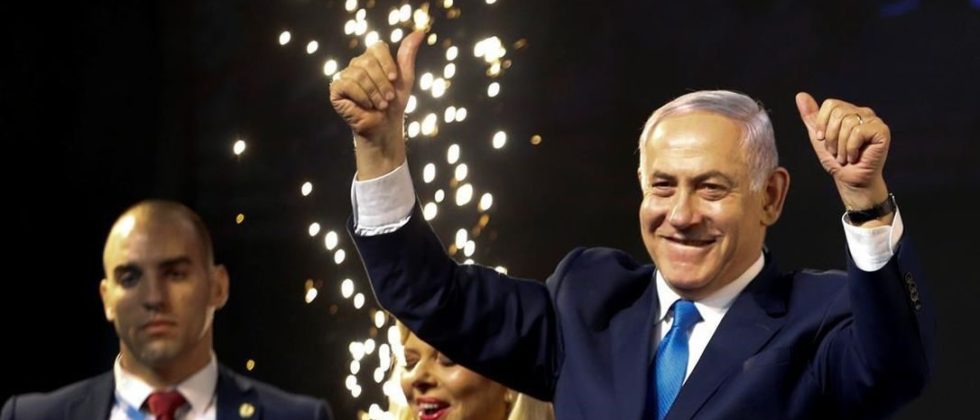news
“Netanyahu and the End of the Two-State Solution”, an article by Dr. Leonel Fernández
April 15, 2019
New York, NY. – During the election campaign there was great uncertainty over whether or not he would be victorious once again. Benny Gantz, a three-star general, who in various occasions commanded Israeli troops against Palestinian insurgents in Gaza, emerged as an unexpected threat. Corruption charges seemed to be an insurmountable obstacle.
However, for the fifth time overall and fourth consecutive time, Benjamin Netanyahu, was backed by the majority of the Israeli electorate. The hegemony of the center-right, which has governed 30 of the last 41 years, was reaffirmed in Israeli politics.
The triumph of Netanyahu this time around was due to the fact that in his thirteen years of government he has delivered economic prosperity and security to the Israeli people. These are the two fundamental factors for the country’s electorate.
He has helped make Israel a country with a high level of technological development and innovation. He has overcome problems related to access to potable water; promoted precision agriculture and has stimulated growth, in industries such as aeronautics, software, biotechnology, nanotechnology and cybersecurity.
Still, Netanyahu, from the security perspective, built a wall to separate Palestinian communities; created numerous control sites; and has refused to allow Fatah and Hamas to recover the lands occupied following the 1967 Six Day War.
Despite the fact that in the last few years there have been attacks committed by Palestinians in Gaza against Israeli citizens with the use of knives, the current situation pales in comparison to the violence during the First Intifada or insurrection that took place over four years between 1987 and 1991.
After the first Palestinian insurrection came the Second Intifada in 2000 which was initiated following the visit from Ariel Sharon, the prime minister of Israel, to the west part of Jerusalem, considered to be the Palestinian capital.
From Conflict to the Search for Peace
The conflict between Israel and Palestine, in addition to being one of the longest geopolitical conflict between people or nations, is also the most complicated. This is because at the same time as being a territorial conflict it is also one about national and existential identity or survival.
While the Palestinians proclaim that what today is territory occupied by Israel has been for centuries the territory of their ancestors, the Israelis, or more precisely the Jews, for their part, claim that since biblical times, Jehovah showed the three patriarchs, Abraham, Isaac and Jacob that Israel was the land promised by God to the Jewish people for eternity.
In the first place, the conflict between the Jews and the Palestinians seems to limit the control of a determined territory, the settlement of a determined population and the establishment of principles of self-determination.
But, not quite. The conflict also has other dimensions. There is also the subjective factor about the identity of each nation; and alongside it the religious factor that while the Jews believe in the old testament, the Palestinians believe in Islam.
In addition to being a territorial dispute and one of identity, the Israeli-Arab conflict is also an existential one; and also about the survival of a people in which one believes that they cannot survive with the existence of the other.
This conflict was exacerbated by the Second World War when the world discovered the horror of what the German Nazi’s had done against the Jews in the Holocaust.
In 1947 the United Nations adopted resolution 181 which, following the end of the British Mandate, recommended a partition of Palestine into two states: the Jewish and the Arab state. Meanwhile it suggested that the city of Jerusalem be a separate entity under international control and administration by the United Nations.
That decision about the partition of Palestine into two states gave rise to the wars between the Arabs and Israel in 1948; 1956; 1967 and 1982; and the insurrections or Intifada of 1987 and 2000.
Alongside these conflicts have been the different peace talks, the most important ones being the Geneva Conference in 1973; the Madrid Conference in 1991; the Oslo Accords in 1993; Camp David Summit in 2000; the Arab Peace Initiative in 2002 and finally the Kerry Initiative in 2013.
The Challenges of the Future
While Benjamin Netanyahu has succeeded in achieving a certain level of security in Israel during his time in government, it is not clear what benefit this has in terms of the future.
In his book A Durable Peace: Israel and its Place Among the Nations, the current Israeli Prime Minister made statements against the Oslo peace process, which established the future needs for the creation of sovereign states of Israel and Palestine.
He also mentions the 1974 resolution by the United Nations that made a call for “the creation of two States, Israel and Palestine, one alongside the other, within safe and recognized borders.”
During his political trajectory, Netanyahu has been consistent. Despite the fact that in rhetorical terms he is not against the solution to the Israeli-Palestinian conflict through the recognition of two states, in his actions he supports the creation of Jewish settlements in territories occupied by the Palestinians since the Six Day War in 1967.
Now, with Donald Trump as president of the United States, the Israeli Prime Minister has found a great ally for his cause. First, President Trump moved the United States embassy from the city of Tel Aviv to Jerusalem. Later on, he supported the candidacy of Netanyahu, and the recognition of Israel’s ownership of the Golan Heights, which legally belongs to Syria.
During his most recent electoral campaign, Benjamin Netanyahu stated his desire to annex the West Bank where 2.6 million Palestinians live under the strict control and guard of Israel.
Thus, the possibility of creating two States of Israel and Palestine has disappeared. However, the conflicts have not. The conflicts will continue since it will be impossible to combine a Jewish state with a democratic society in which the majority of the population will be Palestinian, but without the right to vote or exercise their fundamental rights.
This is the dilemma for which Benjamin Netanyahu, the five-time Prime Minister of Israel, has no strategic solution.






